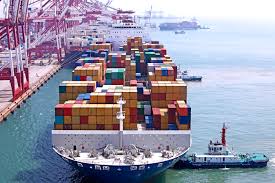Indonesia’s economy will continue to grow in 2017 and 2018, underpinned by improvements in private investment and exports as well as higher public infrastructure spending, says a new report by the Asian Development Bank (ADB).
ADB’s flagship annual economic publication, the Asian Development Outlook (ADO) 2017, projects Indonesia’s gross domestic product’s growth to reach 5.1% this year, and 5.3% in 2018. In 2016, the country’s economy grew by 5.0%.
“On the back of reviving investment and external trade, Indonesia is set to gain further momentum for growth,” said Winfried Wicklein, ADB’s Country Director for Indonesia. “A sustained growth path will require continued efforts to improve infrastructure, deepen structural reform, and address skill gaps.”
Pick-up in private consumption
The ADO expects private consumption to pick up this year, supported by the recovery of commodity prices, the expansion of the government’s Village Fund program, as well as an increase in the minimum wage.
Public infrastructure spending is expected to increase in 2017, in line with government budget allocations.
Private investment is also expected to increase, as a result of rising income from commodity exports and the impact of recent structural reforms designed to clear regulatory bottlenecks and open up new sectors to foreign investors.
With the recovery of international commodity prices, Indonesia’s export prospects are expected to improve.
Meanwhile, with the increase in domestic demand, imports are also forecast to grow albeit at a slower pace, and the difference should help to gradually narrow the current account deficit.
As growth improves and international commodity prices recover, average inflation is expected to pick up.
Risks to outlook
Risks to the outlook include possible delays in the implementation of policy reforms, and shortfall in fiscal revenue.
The ADO also identifies external risks emanating from uncertain trade policies in advanced economies and weaker-than-expected economic recovery of main trading partners.
The ADO notes that the government appears strongly committed to pursuing its reform agenda. These reforms, combined with the strong focus on infrastructure development, will help boost investment and diversify economic activity over the medium to long-term.
The ADO identifies the skill gap as a major constraint for Indonesia to realize its growth potential. “Efforts should focus on developing strategies for mobilizing public and private resources for education and training, as well as making spending on public education more efficient,” Wicklein said. “Close engagement with the private sector is needed to ensure that graduates meet evolving skill needs as Indonesia moves toward higher middle-income status.”
While education attainment in Indonesia has improved, more than half of its workers have not completed high school, and one in four of the youth do not complete 12 years of schooling. The quality of education, and the mismatch between the skills that employers seek and those that graduates possess, require priority attention.


